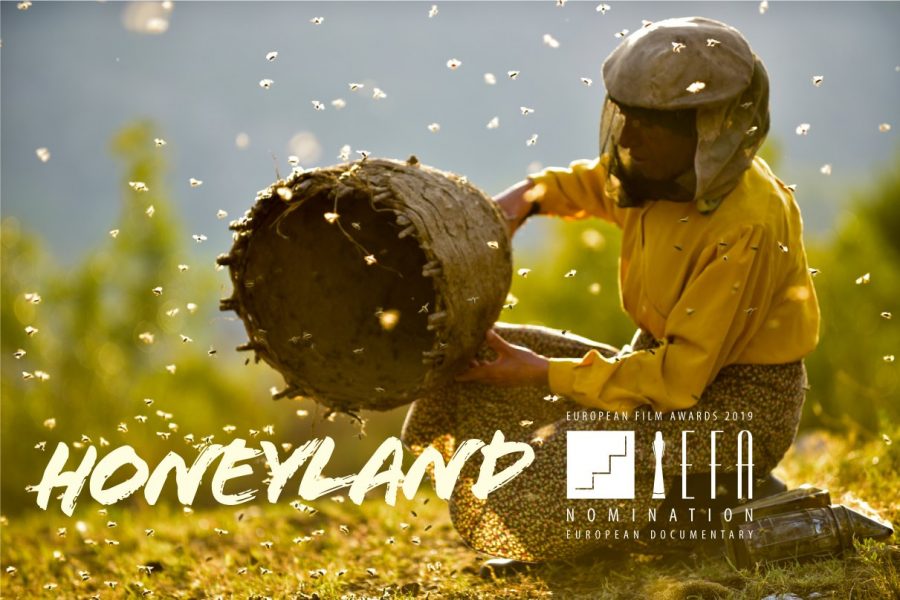“Honeyland” is a Macedonian documentary that follows the life of a beekeeper in the mountains of Macedonia, and what a picturesque life it is. The film is, in a word, gorgeous — it manages to capture the daily struggles of a unique way of life in a highly dramatic fashion, despite being a documentary.
Hatidze Muratova is a Macedonian woman who, besides her bedridden mother, is the last person living in her remote rural village. She makes her living by farming honey using traditional methods, which she then sells to vendors at a market in the country’s capital.
A large itinerant family settles near Hatidze’s home and attempts to join the business, despite an essential lack of respect for Hatidze’s methods.
The Sam family, as they are named in the film’s credits, fails to understand the delicacy of the balance Hatidze has struck between her own needs and those of the bees she raises, and it is this lack of understanding that leads to the film’s central conflict, as the Sams’ actions send the local ecosystem into disarray.
The brilliance of this documentary lies in its rendering of this conflict. It is easy to forget that “Honeyland” is even a documentary at all; the subjects never once interact with the camera or the crew, allowing the viewer to feel like a fly — or, more likely, a bee — on the wall, an inconspicuous observer of a truly human drama.
As is to be expected from such a high-caliber production, “Honeyland’s” cinematography is stunning. It is at once natural and deliberate, chaotic and utterly meticulous, drawing out the film’s themes from the rhythms of nature.
Many of the film’s most breathtaking shots were taken at sundown; Hatidze was doing something at that time of day, and so the film crew was there shooting, but the stroke of genius is recognizing the symbolic significance of such a scene in the context of a film called “Honeyland.” It’s a film ostensibly about beekeeping, so the decision to emphasize amber sunsets over the golden mountain grasslands creates a kind of visual motif, of which directors Tamara Kotevska and Ljubomir Stefanov make full use.
Ultimately, even above the entrancing camerawork and breathtaking imagery, the true artistry of a film like “Honeyland” is done in the editing room; the crew spent three years shooting, and ultimately ended up with over 400 hours of footage which was pared down into a mere 87-minute feature. This means that although no one else can take credit for Hatidze’s story, the filmmakers certainly deserve praise for the fact that it exists on film in such an elegantly concise fashion.
As hundreds of hours of footage were carved away, “Honeyland” became far more than the sum of its parts: it is not just a documentary about beekeeping, but a beautiful story about life, happiness and the human condition, which allows it to strike much closer to home than one might expect.
See “Honeyland” at the Syndicated Bar Theater Kitchen in Williamsburg, Brooklyn this Friday, Saturday and Sunday.
Email Nicholas Pabon at [email protected].












































































































































